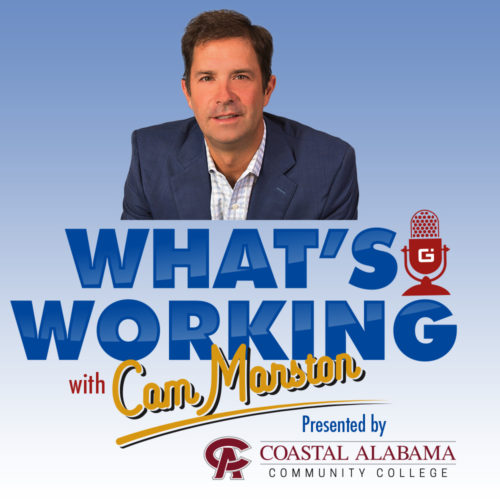
How an ‘environmentalist capitalist lunatic farmer’ is changing how we think about agriculture
Posted On December 17, 2019
How does an English major become a successful farmer? And how does a man who just wanted to see if he and his wife could subsist while farming his family’s land become an internationally renowned authority on regenerative, environmentally-friendly farming and ranching methods?
Joel Salatin, our guest in a recent episode of “What’s Working with Cam Marston,” says it all happened like most great success stories – largely by accident.
With his family, Salatin co-owns Polyface Farm in Virginia’s Shenandoah Valley and refers to himself as a “Christian libertarian environmentalist capitalist lunatic farmer.” What he and his family have done is eschew modern ranching methods for what he calls “pastured livestock” – animals roaming freely as they would naturally, with infrastructure that moves with them.
“When you think about livestock in America, the first thing that generally comes to your mind is some sort of a large confinement house,” Salatin says. “We’re mimicking the natural choreography of animals in nature. They move, and they move in groups, and everything is mobile. We use portable electric fencing, we use portable shelters … portable shade, which means we need portable water – all of that to move with them.
“What that does is make a product, a protein, that is a different nutrient profile, taste profile and texture profile, which then creates a demand in the marketplace for people who are looking for something that’s different than the orthodox fare.”
His approach has been so successful, he’s now a much sought-after speaker and the author of several books, and his once hyper-local business model is in the process of being adjusted and expanded as demand for his farm’s products continues to rise.
Salatin tells us how his family history led him into agriculture, shares the advantages of a natural approach and some of the technology that allows them to accomplish it, and discusses why efficiency is worthless if it’s not aimed toward the right ends. Sought-after as a speaker on business and marketing as well as agricultural topics, he also shares why non-judgmental brainstorming sessions are an important facet of business success.
Most of all, Salatin believes we all share a role in shaping what tomorrow holds. If we don’t like where we’re headed, he says, it’s within our power to change it.
“Look in the mirror and say: Tomorrow’s world is going to reflect the trillions and trillions of little decisions made by individuals like me today,” he says. “We are not helpless. We are absolutely able to have an effect with our day-to-day decisions on the trajectories that concern us.”